Documentary Taiwan Equals Love (Image from GagaOOLala)
GagaOOLala’s original documentary Taiwan Equals Love was released recently. The film took 3 years to make and explores three different generations of Love, from the viewpoints of three different same-sex couples, as they go through the hardships of starting and supporting a family while witnessing some major political movements. Lalatai has invited the director of Taiwan Equals Love, Sophia, or Yan Zhexuan, to share the process and her beliefs in the making of the film.
1. Why did you want to film Taiwan Equals Love?
I haven’t really been much involved in gay movements before, and I'd never imagine that I’d live to see Taiwan with marriage equality. I met Jay, the producer, in 2017 when a glimpse of light was dawning for marriage equality thanks to a handful of legislators’ efforts. It caught wide public attention, as pro-gay and anti-gay voices emerged, dialogs between them began; marriage equality movements then went into full swing. Jay really wanted to film the process of gay people fighting for their rights so that it would go down in history. I thought it was a very remarkable thing and I wanted to document it as well to contribute to marriage equality movements. That’s when I decided to take part in the production of Taiwan Equals Love.

Founder of Portico Media, Jay Lin (second to the right), the cast of Taiwan Equals Love, and the director Yan Zhexuan (second to the left).(Image from GagaOOLala)
2. What is the significance of filming documentaries for you?
Documentaries are gentle yet powerful ways to change society, as they tell sincere life stories that, in this case, might resolve misconceptions regarding gay people, and provide them with a chance of dialog, a chance to accept, to accommodate, and to understand. For a filmmaker, it’s a process of self-dialog, in which they constantly organize one’s thoughts and handle their inner desires.
3. What is the message of Taiwan Equals Love? Can you tell us your philosophy?
Deep down, everyone seeks a “home”. When you meet someone you love, you’d want to start a family with them. And it’s not just living together, but someone that you can always count on for everything in your life. Gay people may find their someone, but they’re lacking assurance by the law, and are hence required to face many risks and hardships alone.
Someone once asked me why are my gay stories all happy? Because I feel that in my head there are simply too many sad gay stories. Reality often hinders “happiness” from gays. So for me, what’s really worth telling is the stories with couples who, against all odds, come courageously together every step of the way.
The fight for marriage equality is fundamentally gay people fighting for their basic rights to be happy. I wanted to know, what exactly do they expect it to become? Why fight for it, when you’ve already got enough in your hands? And what is the actual significance for them to gain this legal assurance of marriage equality?
4. How did you choose which subjects to film in Taiwan Equals Love?

Tien-Ming and Ho Hsian who have been together for over 30 years. (Image from GagaOOLala)
I wanted to have subjects from different generations from the beginning. Mostly because I wanted to showcase the hardships presented in different ages, and of how couples face the pressure of their families, and what different meanings marriage equality has to them.
5. What was the most memorable thing during the filming of Taiwan Equals Love? Why?
That would probably be May 17th, 2019, the day before the “Act for Implementation of J.Y. Interpretation No. 748” was voted in the legislature. The fact is that since the day of the constitutional interpretation on May 17th, 2017, when the grand justice requested that the legislature passed a bill within 2 years, the voices of anti-marriage equality never ceased. Especially the conservative churches, they were constantly looking for means to prevent marriage equality from happening; even petitioned for a referendum, which torn many gay hearts apart. In the course of making the film, we’ve heard many gay-blackening voices. And yet, we carried on with such tears in our hearts, as we fought to defend that bottom line of “marriage”.
On May 17th, 2019, the day of the bill vote and the last step of the road, we were hit by a sudden downpour, as if the final test from the heavens. That day, gay people stood before the legislature, soaking wet, but determined. As soon as the bill passed, the skies cleared. It was a magical moment that we collectively experienced, and an excitement that I’ll never forget.

(Image from equallove.tw)
6, There were many rallies in the film, and from both sides. Which of them do you consider the most memorable one?
There was no shortage of confrontations between the for and against, but the one that stuck with me is the night before the referendum when I hurried to the train station with Jovi, Mindy, and Aliy during the rush hour. They brought their own posters and leaflets and stood there, single-handedly, voicing for the pro-gay referendum. I thought of David and Goliath. The Family Guardian Coalition’s anti-gay propaganda was quite intense at the time, and yet Jovi was fearless as she constantly tried to dialog.

Jovi (Right) and Mindy (Left) attending a LGBTQ+ parade with Jovi's daughter Aliy. (Image from GagaOOLala)
They stood there on the street, bravely, and faced the reactions of every passer-by. It takes quite some nerve to speak for gay people and to fight for your rights. I was constantly worried that there would be anti-gay people coming to rebuke us. And there was. A woman passing by shouted some pretty nasty words at us before she swaggered off.
Taiwan is on its course to become a mature democratic society. People are still learning to tolerate different voices, to heed to different opinions, and to agree to disagree. But many would rather speak on the internet than to talk face to face. For me, to go single-handedly on to the streets and to directly confront opposing voices was a remarkable experience and an invaluable lesson.
7. Taiwan Equals Love took you three years to film. What were the hardships that you ran into, and how were they resolved?
The hardest part was to show the everyday lives of gay couples. We wanted to film moments that were essentially “the same” as general heterosexual couples. We observed and captured their nitty-gritty lives, and while we wanted to showed that they were “the same”, we also wanted to document the “uniqueness” of every relationship. The only way around it was to keep the camera rolling non-stop, as we walked into their lives and tried to make them feel that we weren’t there while they went about their business naturally.

Gu and Hsinchi's transnational romance is challenged by both their business and families. (Image from GagaOOLala)
8. As a member of the LGBT family, does Taiwan Equals Love remind you of your own life story?
Like many gay people, I grew up in a traditional heterosexual family. I was Christianized when I went to church in college, and it wasn’t until I was in graduate school did I start dealing with my gender identity. In the relatively conservative church environment, I went through a repressed, confusing, and difficult process, and I only learned to accept myself when I left the church. Even now, though I’ve been with my partner for 14 years and are on good terms with each other’s family; we are still facing the issue of whether we are truly understood and accepted by our families.
9. Would you like to make more LGBT films? Are there any other themes that you would like to film?
If the opportunity presents itself, I would very much like to keep on filming movies, TV shows, or documentaries related to LGBT.
10. Is there anything you’d like to tell the readers of LalaTai and Taiwanese gay people?
The marriage equality bill has passed, but don’t forget that there is still a group of transnational gay couples who await happiness; many gay family children who are yet to be equally assured; and gay people who haven’t yet come out to their parents and colleagues…, there is still much prejudice and discrimination out there against gay people, so we’d have to continue our fight for equal rights.




















